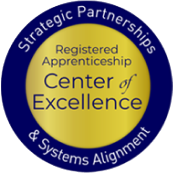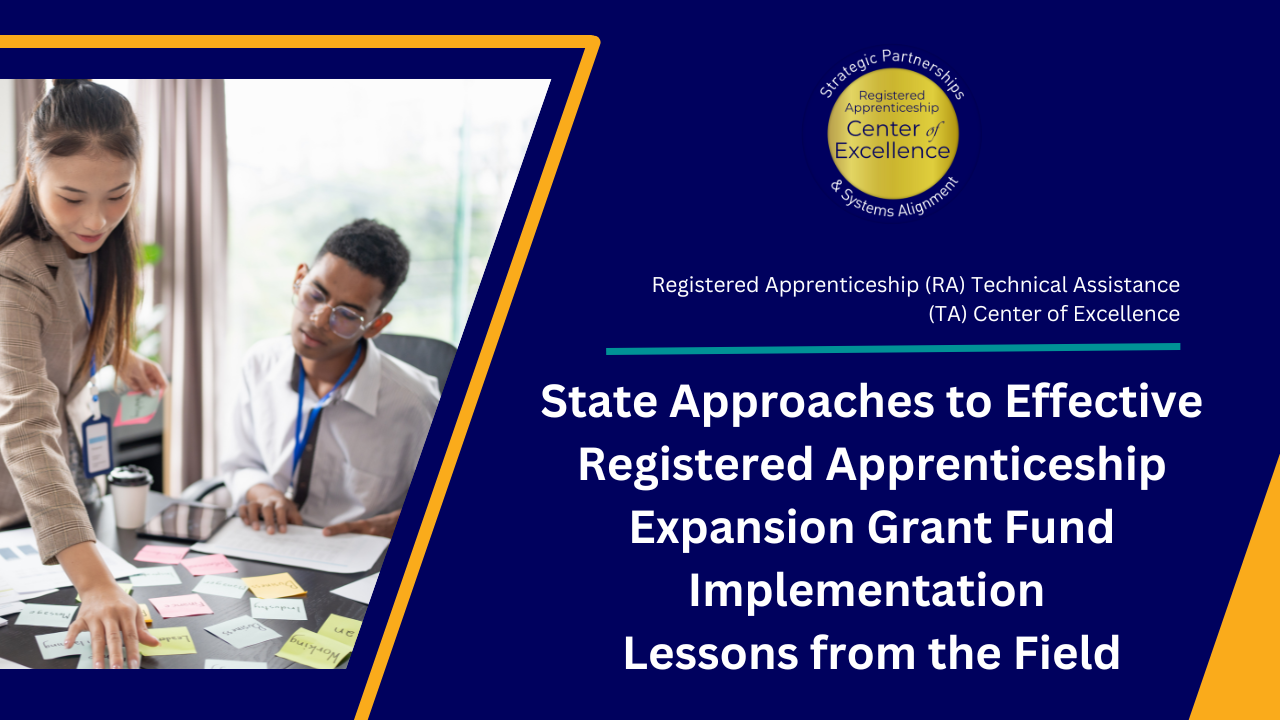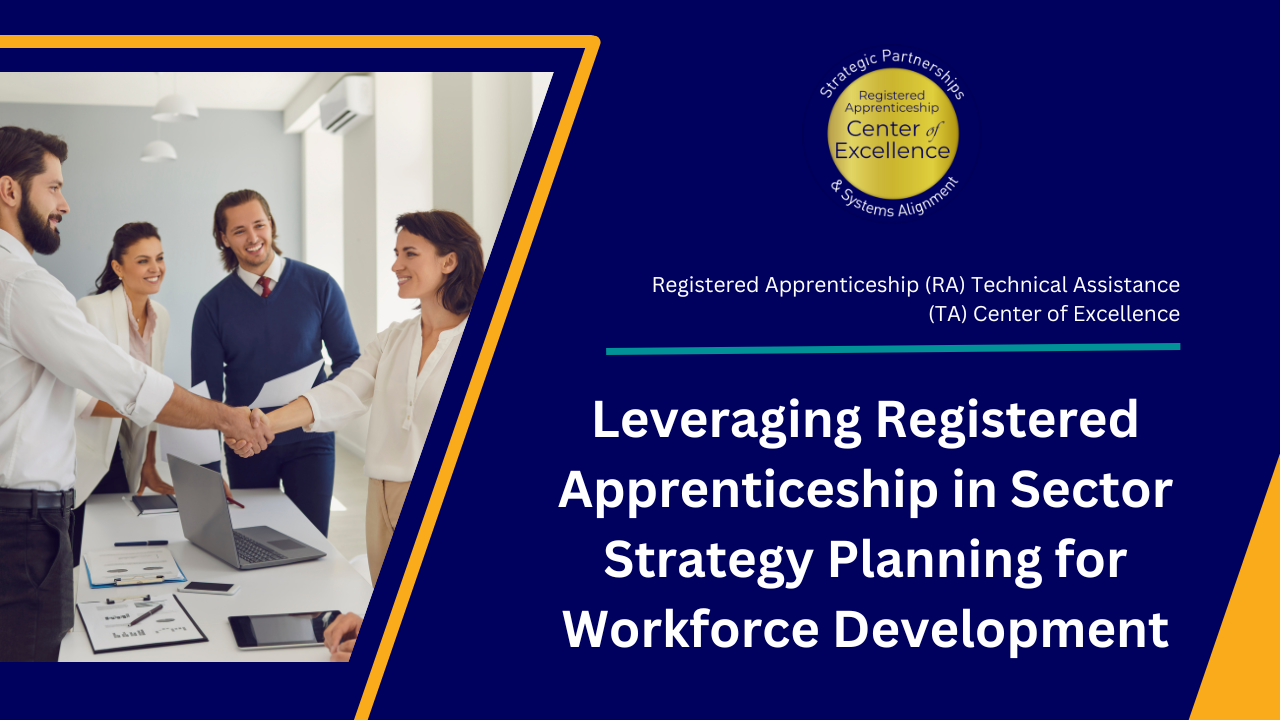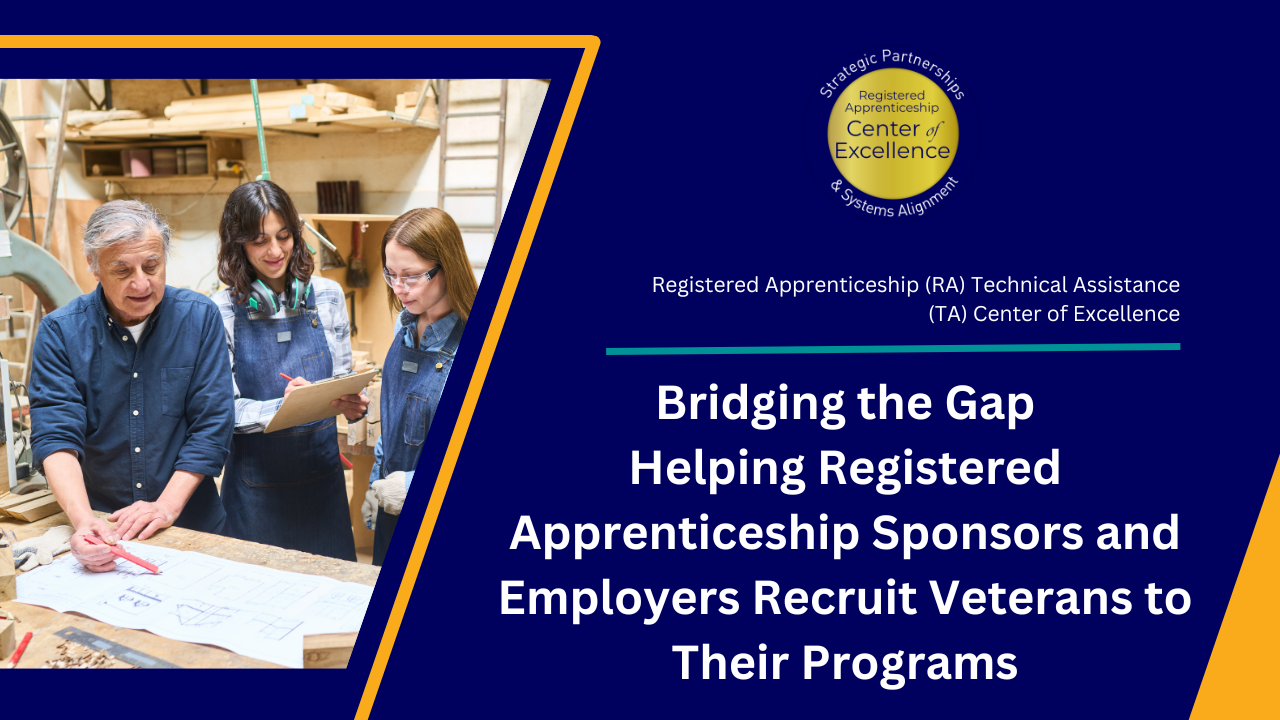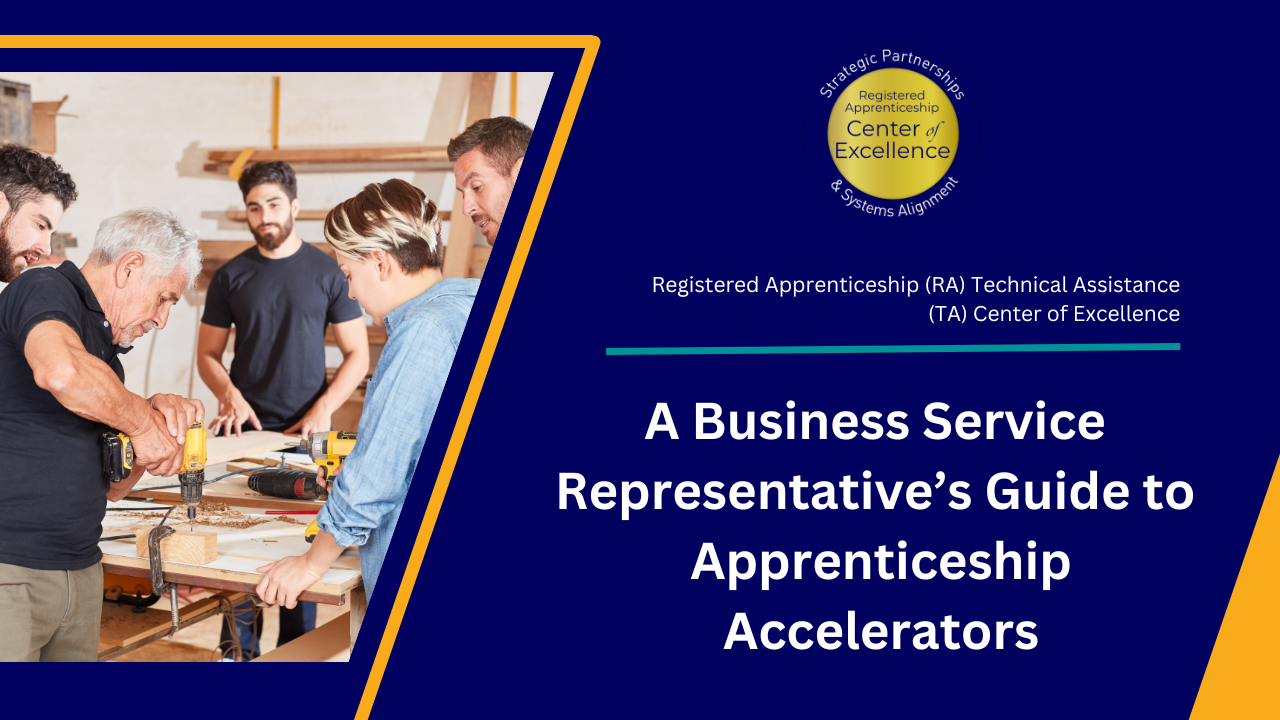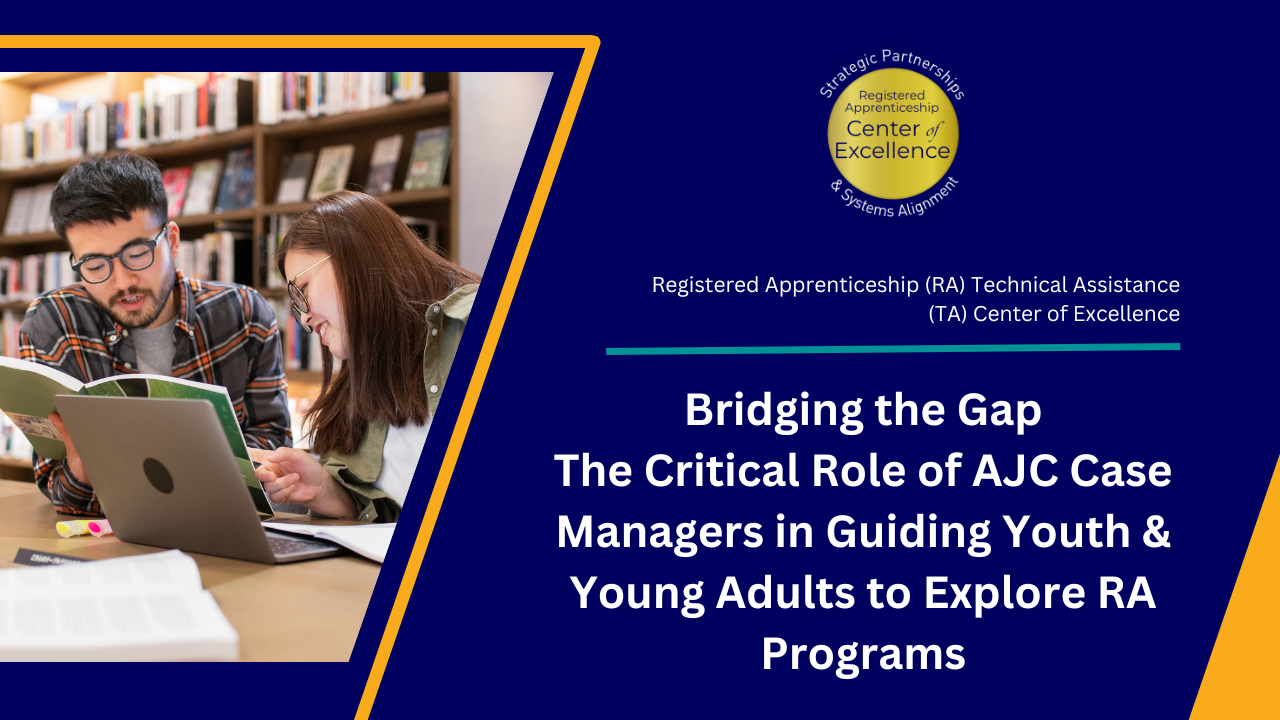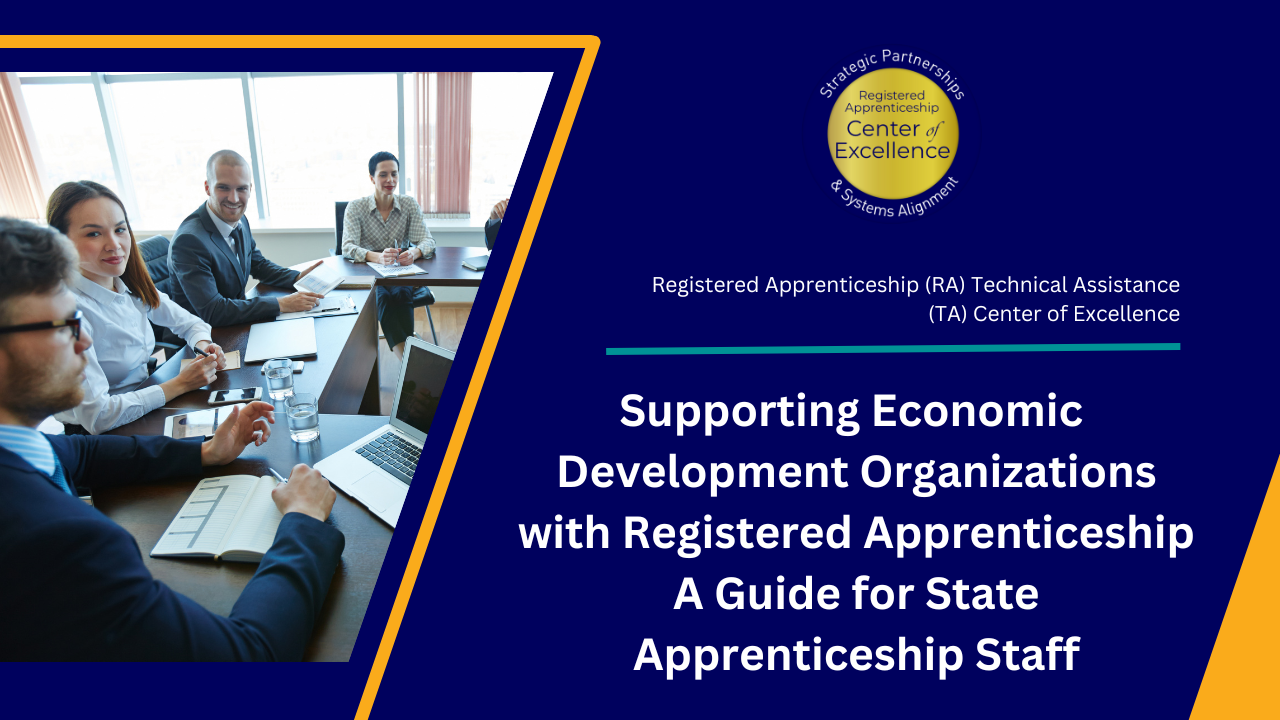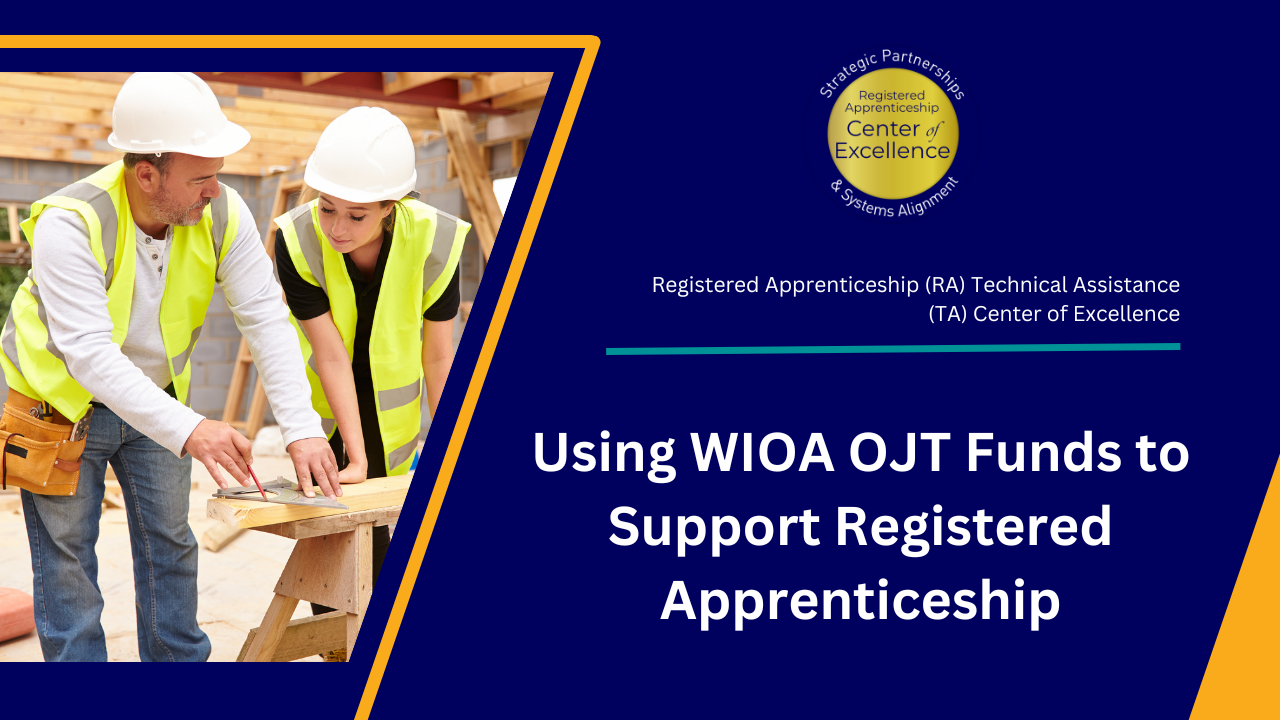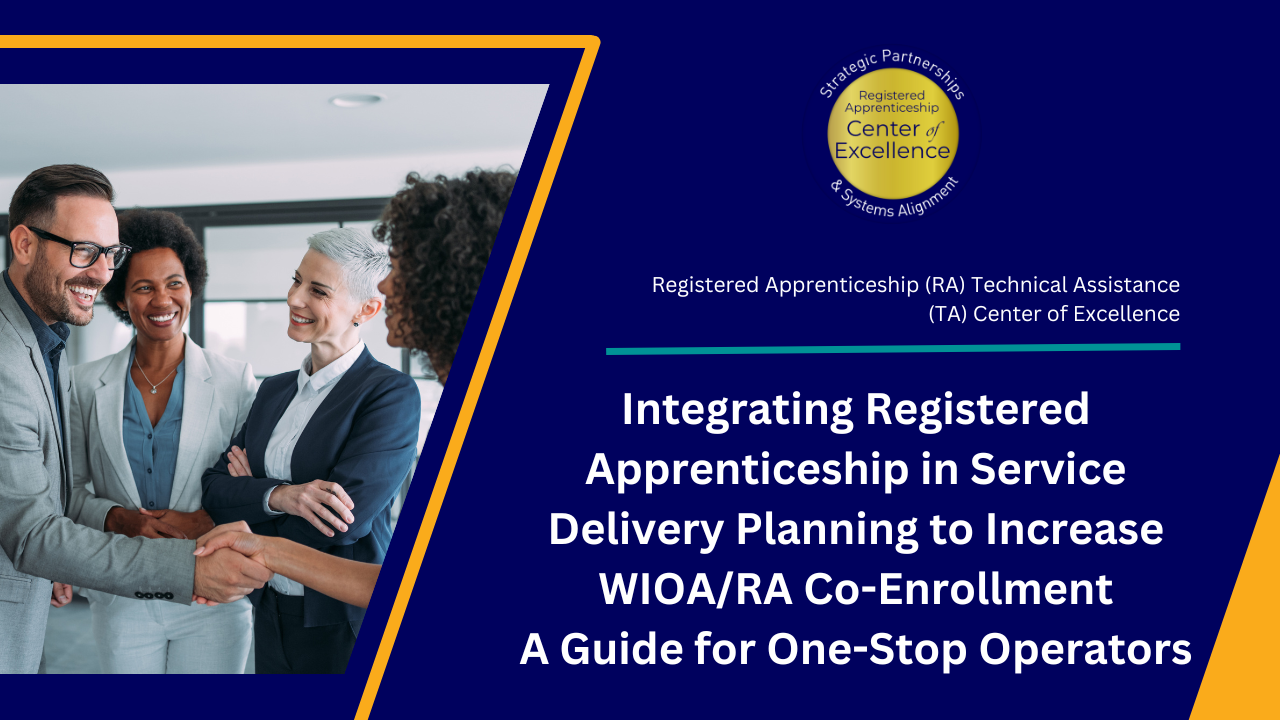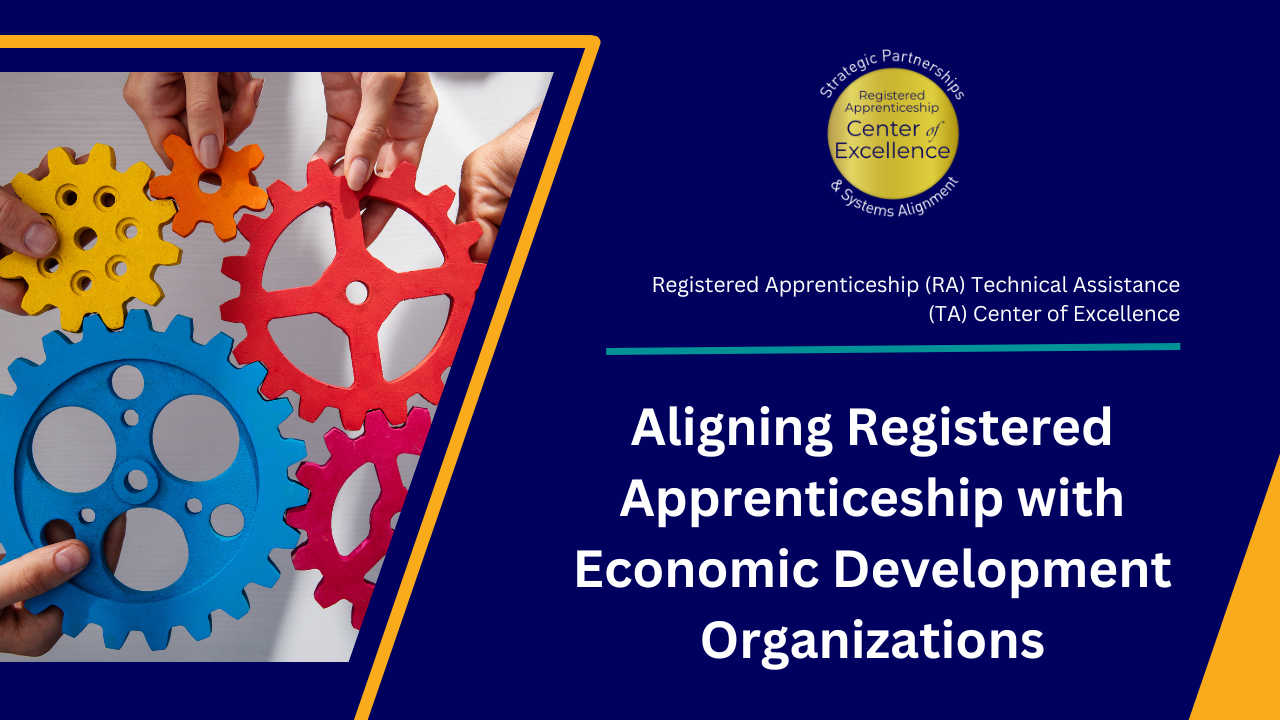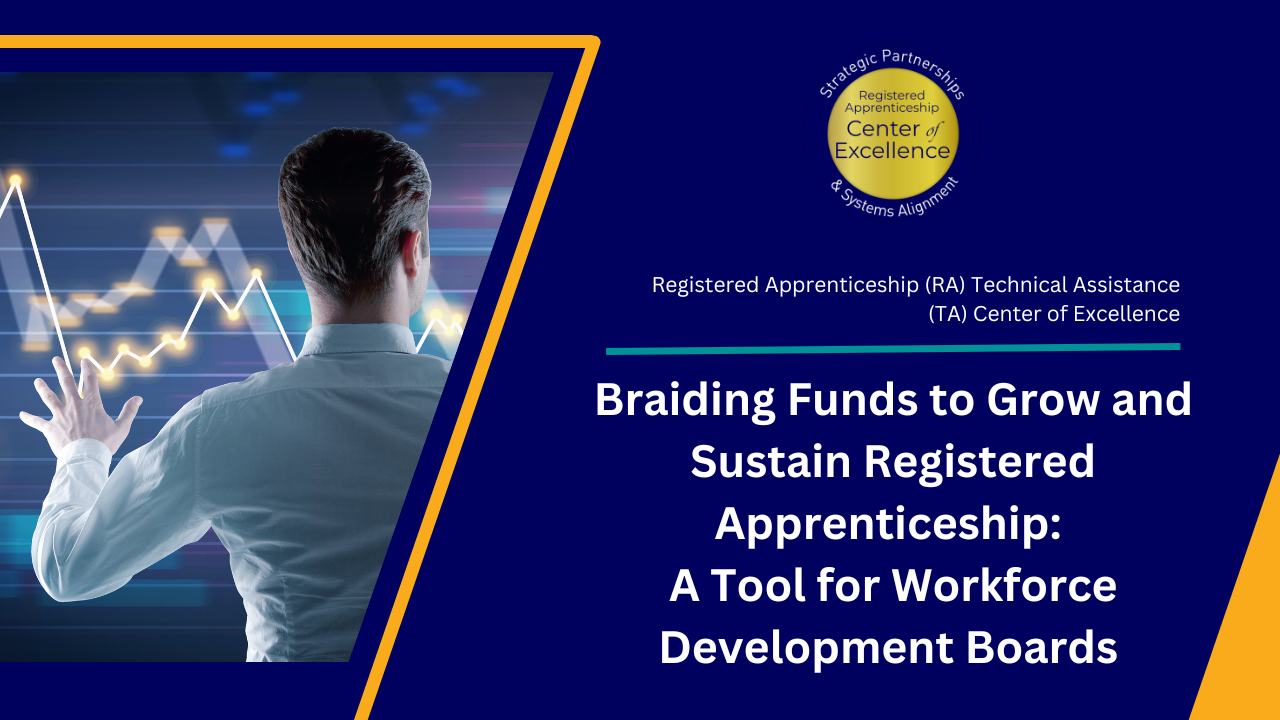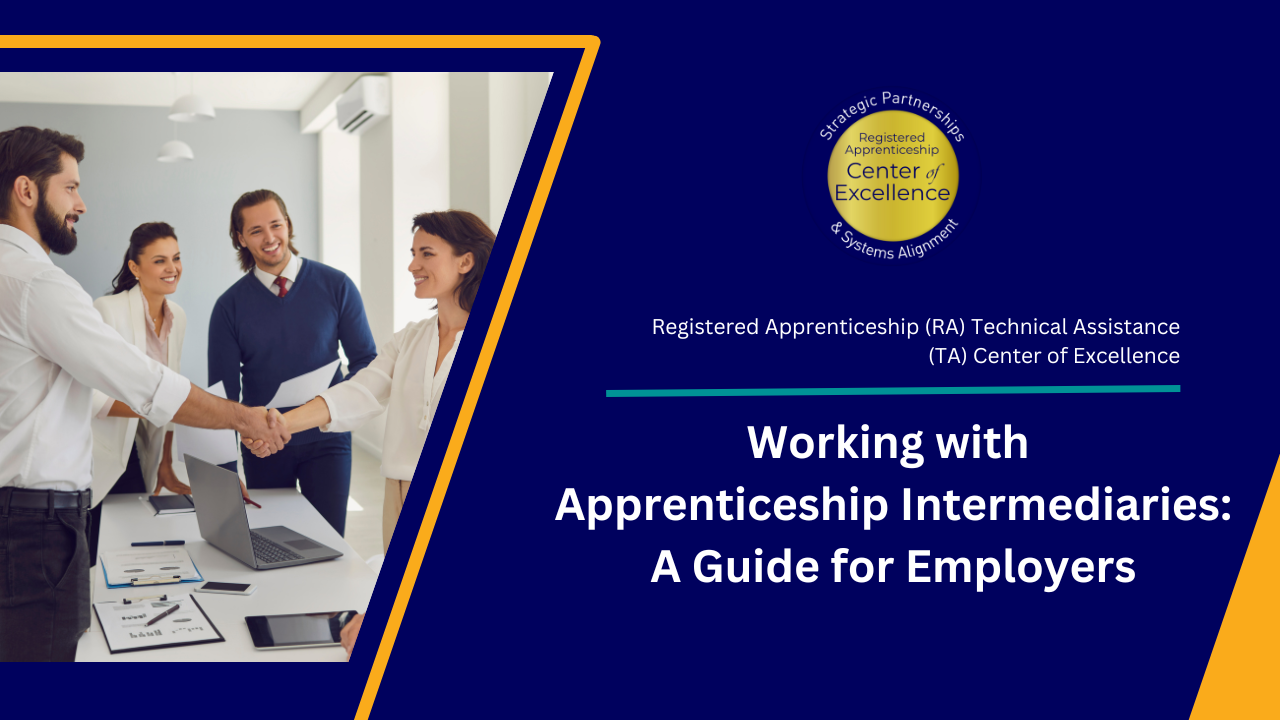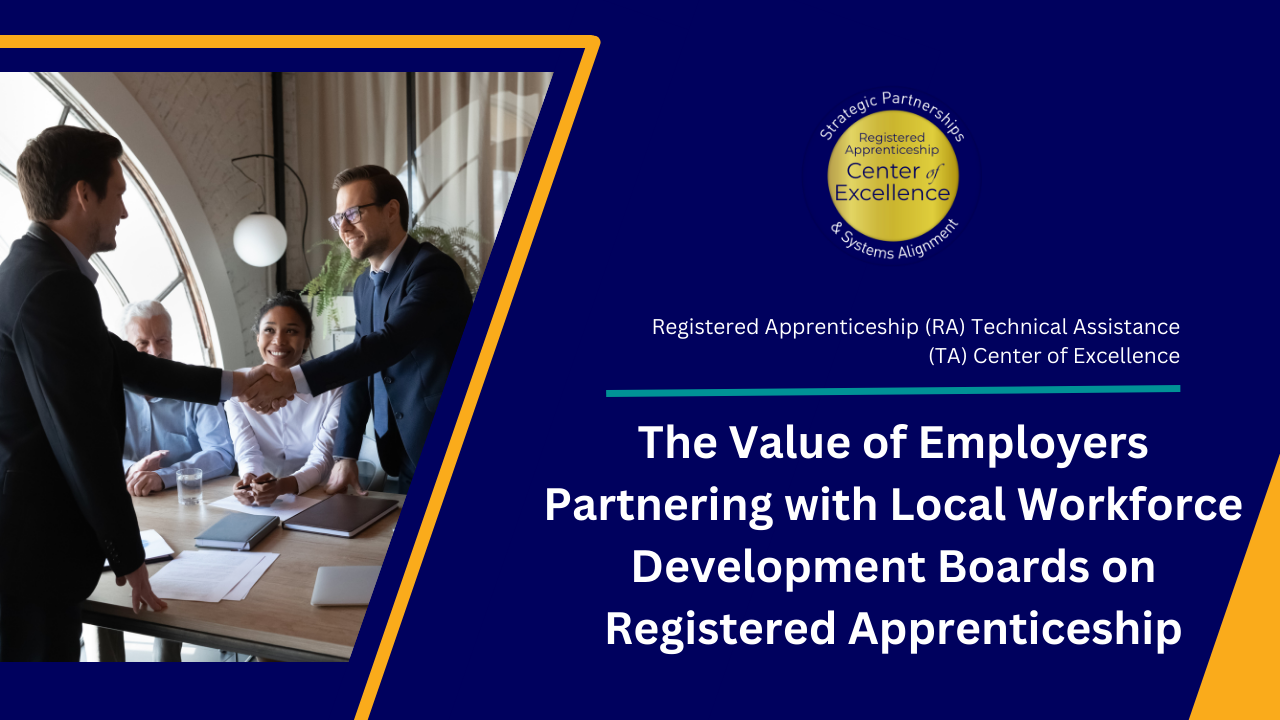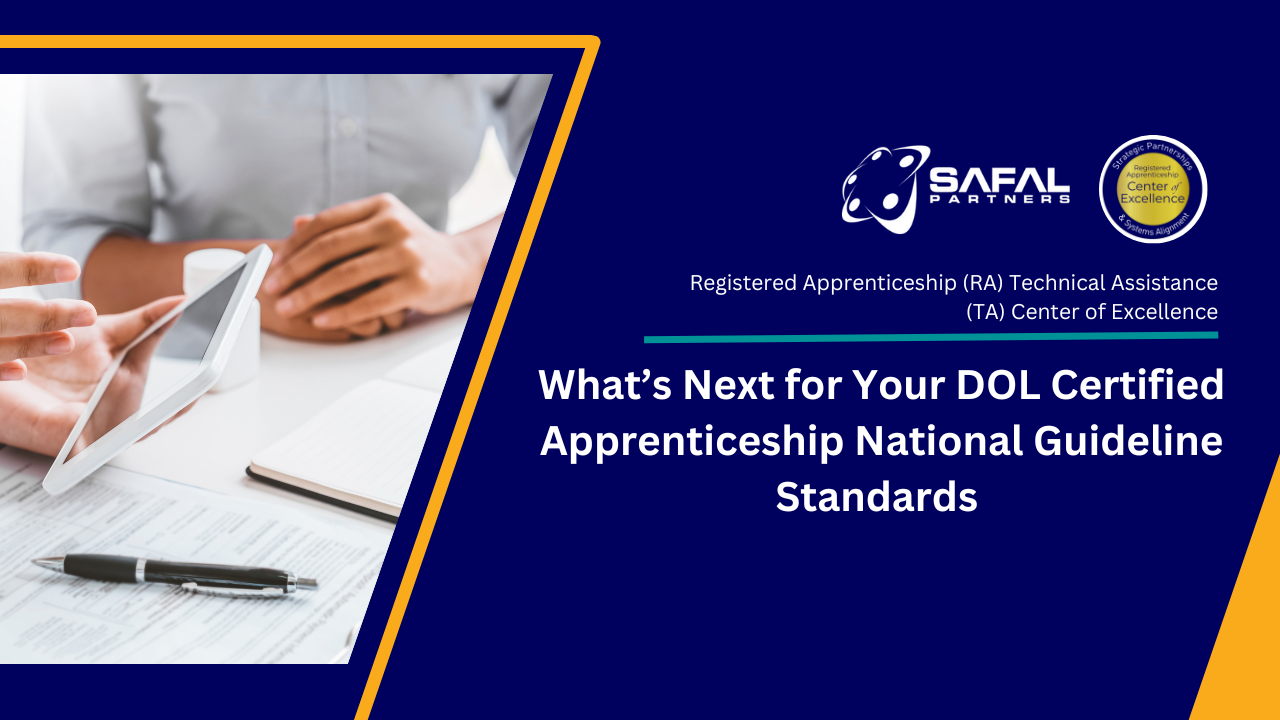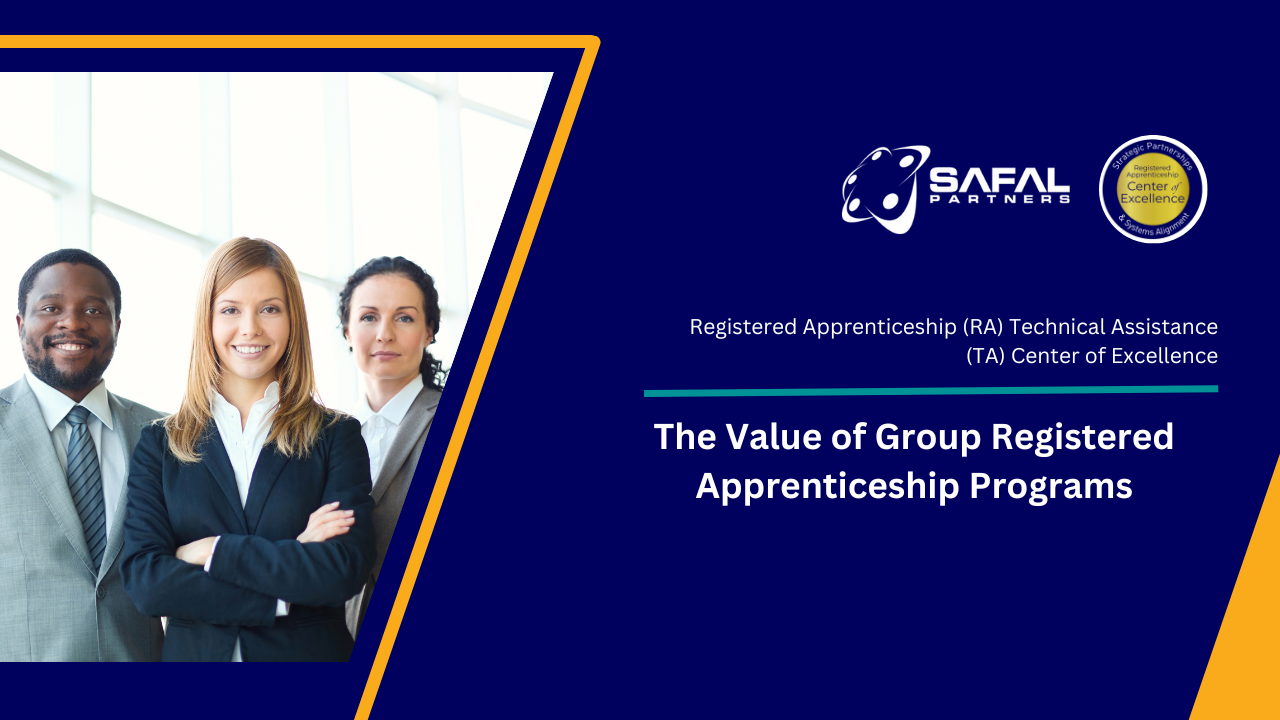Since 2016, the U.S. Department of Labor (DOL) has significantly increased its investment in Registered Apprenticeship (RA) as a proven strategy for building a skilled workforce and expanding economic opportunity. A key component of the federal investment in scaling RA adoption nationwide has been implementation of apprenticeship expansion grants to state agencies. This report explores how states have implemented these grants, implementation challenges, and promising practices they have utilized to meet RA expansion objectives. Drawing on RA grant program data, interviews with state RA expansion grant recipients, and state-level documentation, the report highlights key lessons that can inform future efforts to fund RA program expansion and new Registered Apprentice growth. By examining both common themes and innovative approaches, this report offers practical insights for policymakers, practitioners, and stakeholders working to advance apprenticeship opportunities and outcomes nationwide.
Create Skilled Workers. Build Loyal Talent. Engage in Apprenticeship.
Registered apprenticeship (RA) is a proven, industry-driven strategy for building a skilled workforce. Employers in every industry are utilizing RA to recruit, train, and retain new hires and upskill incumbent workers because the model:
- generates positive ROI - employers report* earning an average of $1.47 for every $1 invested in apprenticeship through cost savings and increased productivity,
- reduces turnover and drives higher worker loyalty rates - 92% of all apprentices who complete a program are retained as permanent, full-time workers*, and 91% are still with their employer a year out,
- creates opportunities to widen the pool of candidates from which employers source talent by having a structure training program,
- creates a platform for stronger relationships with local education and workforce partners to identify and recruit talent earlier, and
- provides access to unique federal and state funding and support, including tax credits, potential wage support/reimbursements, tuition support, no-cost federal bonding, supportive services for qualified apprentices and more
*source: USDOL Office of Apprenticeship
Engage with the Center by:
Viewing materials in our online repository (see below)
Resources
Regional economies increasingly compete on their ability to develop and retain skilled talent in key industry sectors. With an aging and shrinking workforce, and rapidly developing technology impacting workforce development across the board, traditional approaches may increasingly fail to align with employer needs, resulting in skills gaps that limit business expansion and reduce competitiveness. State and local economies will increasingly be forced to develop and quickly scale more innovative approaches to supporting current and prospective employers’ talent strategies. This guide outlines how Registered Apprenticeship (RA) programs serve as a powerful tool within sector strategies to build sustainable talent pipelines and meet industry-specific workforce needs.
Each year, nearly 200,000 service members transition from military to civilian life. These veterans are ideal candidates for RA programs. These programs offer a structured, earn-while-you-learn approach that closely mirrors the training models many veterans experienced in the military. With the promise of paid, hands-on training and a clear path to long-term employment, RA programs provide the stability, skill development, and career advancement opportunities many veterans seek. This tip sheet highlights effective strategies for recruiting veterans into RA programs, helping sponsors and/or employers connect with this highly skilled and disciplined talent pool while supporting veterans in building meaningful, long-term civilian careers.
As a Business Service Representative (BSR) your goal is to engage local employers in developing sustainable solutions for their workforce development. Registered Apprenticeship (RA) is the most time-tested, proven method for employers to recruit, train, upskill and retain their workforce. Apprenticeship Accelerators are an ideal format to engage and educate employers in your community about RA as a tool for their human capital strategy. This toolkit is designed to help you think through important details when planning your event to ensure an ideal experience for your targeted employers. Based on best practices and extensive experience, this resource includes key considerations on the “who, what, when, where, and how” for coordinating your event. Also included is an Event Planning Template to help guide your planning and communicate decisions across your Accelerator team.
Workforce development professionals who work with youth and young adults provide essential services, supports, and connections for career exploration and development. RA is another powerful option for in-school youth (ISY) and out-of-school youth (OSY) enrolled in Workforce Innovation and Opportunity Act (WIOA) Youth programming across the U.S. Opportunities through RA, including youth apprenticeship and pre-apprenticeship, open doors to help young people prepare for high-demand careers through a tried and true earn-and-learn model. This guide offers Case Managers who work in American Job Centers (AJCs) information on apprenticeship opportunities that align with WIOA Youth program elements and lead to positive outcomes during and after program exit.
Educating Economic Development Organizations (EDOs) on Registered Apprenticeship (RA) basics ensures that they can accurately represent and promote apprenticeships as a core workforce strategy. This knowledge empowers them to integrate RA into their economic development efforts, unlock new opportunities for business growth, and strengthen their region’s position in a competitive economy. This guide helps State Apprenticeship Agencies (SAAs) and Office of Apprenticeship (OA) staff effectively support EDOs in leveraging RA as a strategic workforce and economic development tool.
Registered Apprenticeship (RA) is a proven workforce strategy that combines paid work experience with structured learning. Employers build a skilled workforce, and participants earn as they gain experience, often leading to permanent employment and career advancement. The Workforce Innovation and Opportunity Act (WIOA) is the nation’s primary workforce development legislation, designed to help job seekers access employment, education, training, and support services, while also assisting employers in finding skilled workers. It promotes coordination among federal, state, and local workforce programs to create a more efficient and effective service delivery system. Workforce boards and WIOA staff can support RA expansion by leveraging On-the-Job Training (OJT) funds. This tip sheet provides best practice for workforce boards on how to use WIOA OJT funds to support RA.
The guide equips One-Stop Operators (OSOs) with a clear framework for integrating Registered Apprenticeship (RA) into WIOA services by defining core OSO responsibilities, outlining strategic steps to boost WIOA/RA co-enrollment, and providing sample metrics and resources. The guide covers how to embed apprenticeship discussions into regular agendas, build interagency apprenticeship teams, standardize workflows, leverage data, and target population-focused practices to drive apprenticeship results.
Access to an adequate pool of skilled labor is the most critical site-selection factor for firms looking to either launch new operations or relocate. Firms want readily available, skilled talent to sustain operations and growth. Successful firms rely heavily on demographic and occupational data, workforce analytics, and local training infrastructure in site feasibility models. Offering existing firms as well as potential new businesses a network and model of robust RA programming should be considered a key factor for Economic Development Organizations’ (EDOs) work to support local and regional workforce sustainability. Incorporating RA into economic development strategies can help EDOs attract and retain businesses, enhance local workforce readiness, and promote regional prosperity and growth. This guide will explore the strategic value of RA for EDOs, the current policy environment that supports this alignment, and the collaborative roles of state RA staff and the public workforce system.
Business Services Representatives (BSRs) play a vital role in helping local employers with talent pipeline development. Employers need more than just a job order posting or a resume referral; they need a longer-term solution to recruit, train, retain, and upskill staff. BSRs can help employers by engaging them not only in WIOA Core and Partner Program services, but also by introducing them to Registered Apprenticeship (RA). This guide provides BSRs with strategies to effectively engage employers and American Jobs Center (AJC) staff to increase co-enrollment of customers in WIOA Title I—Adult, Dislocated Worker, or Youth—and RA.
Employers across diverse industries are increasingly utilizing Registered Apprenticeship (RA) programs to meet critical workforce demands. Accelerating adoption of RA requires that employers can access the full spectrum of funding support. State and local workforce development boards (WDBs) can play a crucial role in meeting employers’ needs and supporting the expansion of RA nationwide with strategic use of both Workforce Innovation and Opportunity Act (WIOA) and non-WIOA funds. This tool is designed to provide local WDB leadership and staff with knowledge and tools to leverage, or “braid,” a wide array of funding sources to support local employers in growing sustainable RA programs.
The Center of Excellence developed this practical guide to help businesses understand, engage with, and form effective partnerships with apprenticeship intermediaries. The guide explains what intermediaries are, outlines the various types (including national, regional, and youth-focused organizations), and highlights the key roles they can play—such as conveners, technical assistance providers, or program sponsors. It features real-world examples, readiness checklists to evaluate your company's preparedness, and actionable tips for selecting the right partner. The guide is ideal for employers looking to launch, grow, or improve existing Registered Apprenticeship programs with expert support.
This two-page guide outlines how employers can benefit by collaborating with Local Workforce Development Boards (LWDBs) to establish or expand Registered Apprenticeship (RA) programs. It highlights several employer challenges such as sourcing qualified talent, accessing training providers, covering Related Instruction (RI) costs, and navigating labor market data, and shows how LWDBs can help address each. Key resources include candidate screening and recruitment, pre-apprenticeship training, leveraging WIOA-approved education/training providers, funding support, and connecting to community partners. This guide is designed to help employers understand the tangible advantages of such partnerships and how they make apprenticeship programs more effective, affordable, and sustainable.
Recognizing the importance of strategic rollout and adoption of National Guideline Standards (NGS), this tip sheet provides guidance on how to transition from approval to implementation. It offers practical steps for raising awareness, connecting with key stakeholders, and supporting partners in registering new Registered Apprenticeship (RA) programs using NGS. The tip sheet outlines best practices for marketing, partner engagement, and sustained support to increase the utilization of NGS as a scalable workforce development tool.
This resource explores group Registered Apprenticeship (RA) programs and how they can significantly enhance the reach and effectiveness of RA programs. Learn what a group RA program is and the benefits including efficiency, peer collaboration, and cost effectiveness when meeting workforce goals. Employers and organizations committed to building career pathways for students and career seekers are urged to use this resource to find a group sponsor or become a sponsor of a group RA program.
